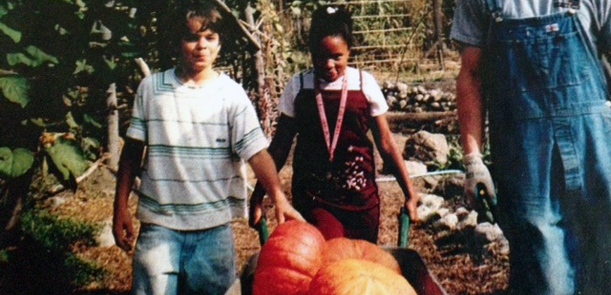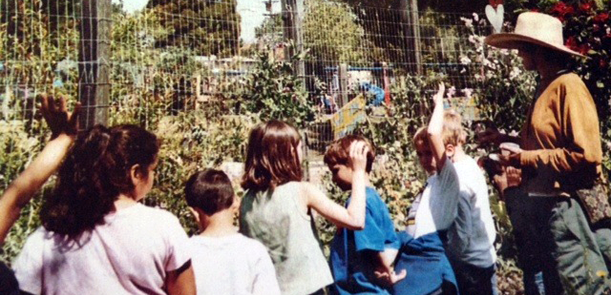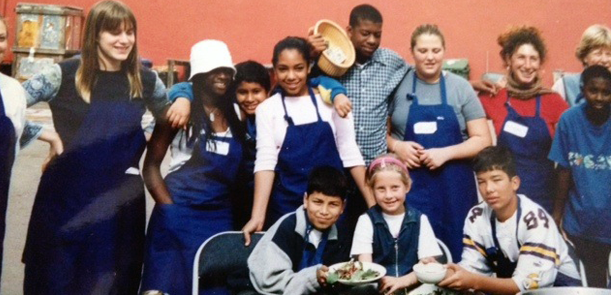The Berkeley Food Policy Council (BFPC) is a coalition of local organizers, activists, visionaries, and entrepreneurs who work towards promoting regional agriculture and community access to healthy food. The BFPC was established in 1999 and meets on a quarterly basis. Although the geographic scope of the BFPC is limited to the city of Berkeley, its influence, membership, and activities are not strictly limited by city boundaries.
Join us for a FREE BFPC Event: High Five for Soda Taxes! Celebrating the 5th Anniversary of Berkeley’s Measure D Campaign. February 4, 2019 at 6:30pm at the YMCA Teen Center in Berkeley. More info and registration can be found here.
Mission and Vision
Mission
Our mission is to reduce diet-related illness of Berkeley’s under-resourced residents and communities of color, through information sharing, programmatic collaborations, and changes to the policy landscape that increase the consumption of fresh local foods.
Vision
We are working toward a vision of a local food system based on sustainable, regional agriculture that fosters the local economy and assures all people of Berkeley to have access to healthy, affordable, and culturally appropriate food from non-emergency sources.
How To Join
All Council meetings and Steering Committee meetings are open to the general public. Meetings are scheduled and announced over the listserve. To join the group and be added to the listserve, fill out the form below:
If you have any issues with the form above, please contact martin@ecologycenter.org.
Featured Projects
“Real Good Food” Language: The BFPC reached consensus on language to define the meaning of healthy food.
Macro-level Statements: The BFPC is working towards developing overarching statements that can be applied to formulating policies or adopted by sister food policy councils.
Gill Tract Community Farm: The Gill Tract is University-owned land that for years was used solely for research projects. After much organizing, now portions of the land are shared with the community for food production.
SFROW bioremediation garden: An arsenic remediation project has been established on the Santa Fe Right-of-Way in an attempt to make the space safe for future use a community food production zone.
Berkeley Climate Action Coalition: The Land Use Working Group of the BFPC has connected with the Land Use Working Group of the Berkeley Climate Action Coalition to pursue common goals of more urban space for urban agriculture and community gardens.
Past Success
EBT at Farmers’ Markets: Allows use of WIC and SNAP benefits (food assistance programs) to be used at farmers’ markets. Spearheaded by Penny Leff, formerly of the Ecology Center. Many regional and nationwide Farmers’ Markets now allow EBT.
Spiral Gardens: BFPC helped Daniel Miller start Spiral Gardens Community Food Security Project on sections of a historic railroad right-of-way. This project has increased greenspace in southwest Berkeley and consistently provided elders and neighbors with fresh produce and the means to grow it themselves.
Transformation of school lunch program: BFPC wrote and passed two pioneering food and nutrition policies, which permanently changed the way children in the school district were nourished. Child Nutrition Advisory Committee and BUSD nutrition services reformed school lunches from processed and frozen foods to freshly-prepared, organically grown local meals.
Passage of food policy for BUSD, 1999
Passage of food policy of city of Berkeley, 2001
School Gardening and Cooking Programs: BFPC helped Yolanda Huang and other BFPC members obtain federal funds to form teaching gardens and nutrition education in every school in Berkeley, CA. This program still endures and is restructuring its funding to become self-sustaining.
Youth Empowerment: BFPC has helped to develop food-related youth leadership programs in Berkeley such as Berkeley Youth Alternatives and The Ecology Center’s Farm Fresh Choice, which are staffed by youth and provide services directly to youth.
[Slideshow photos provided by Beebo Turman]







